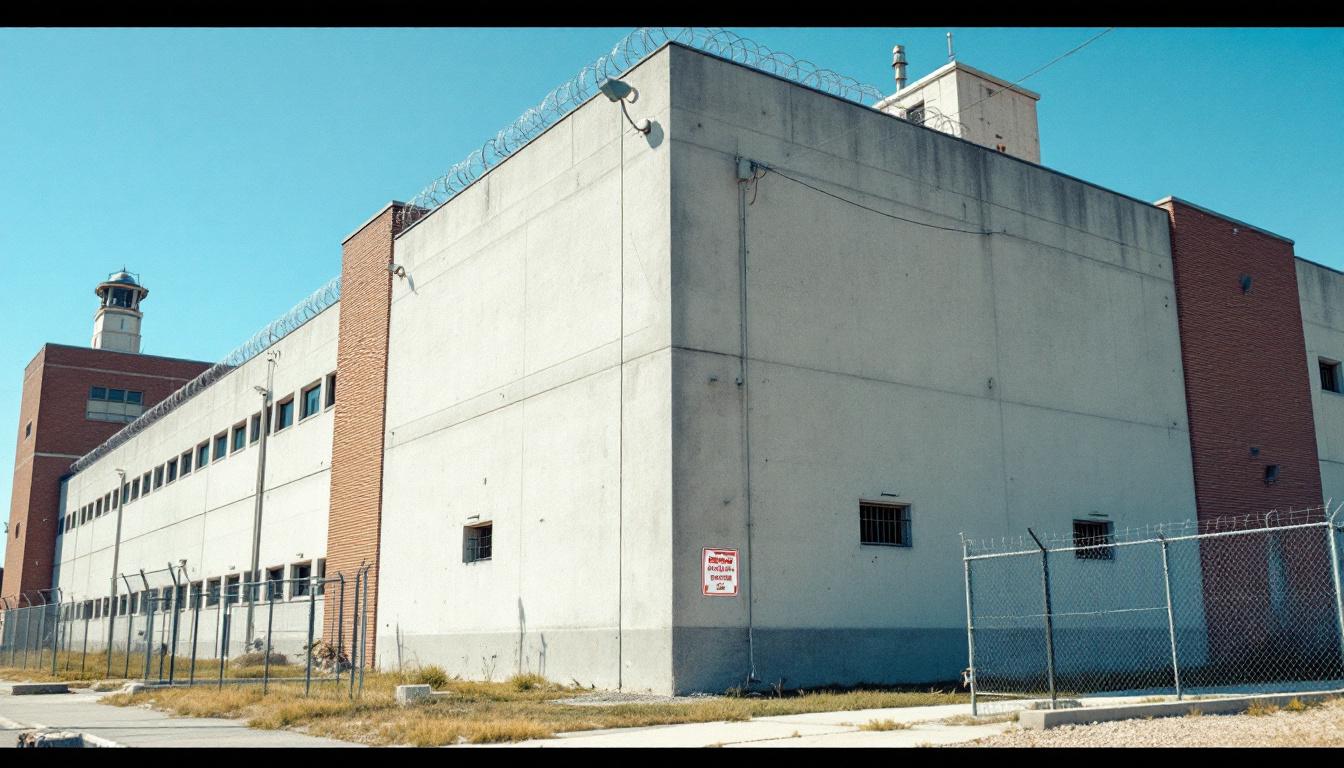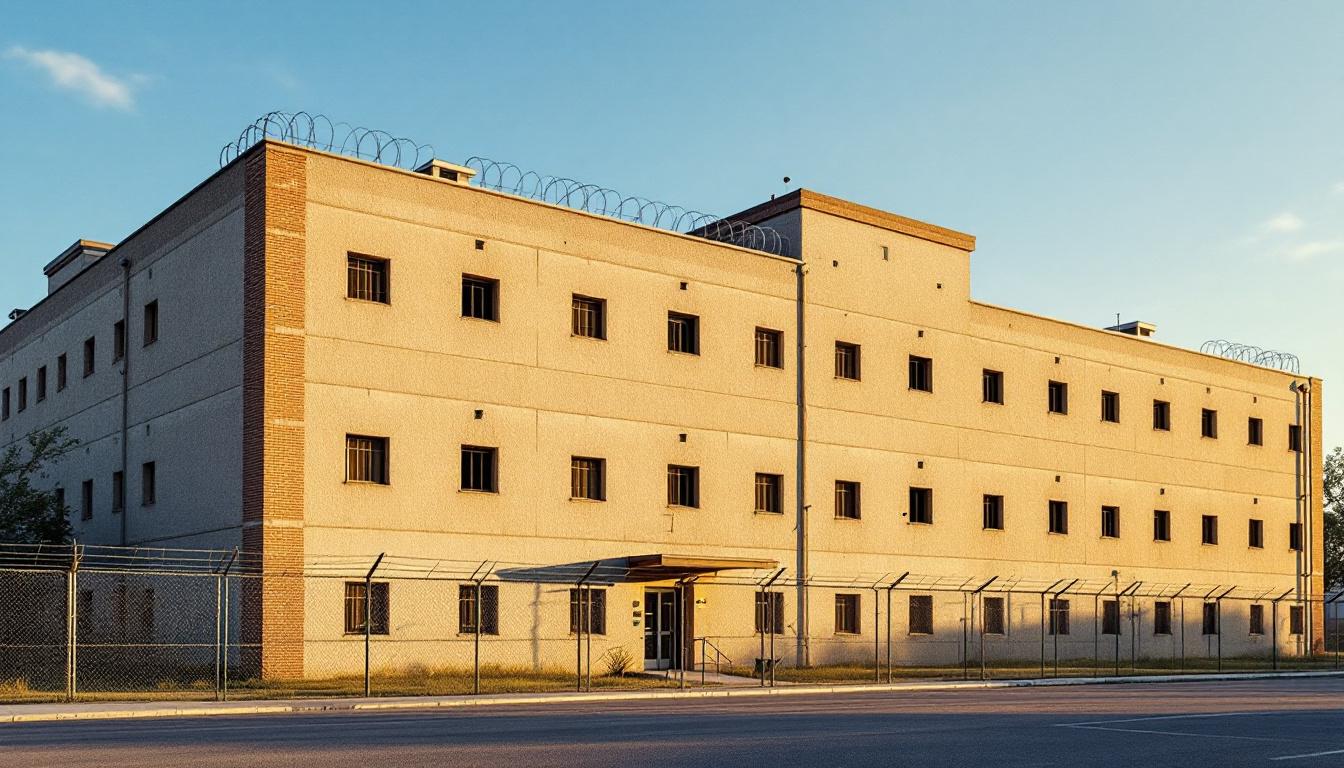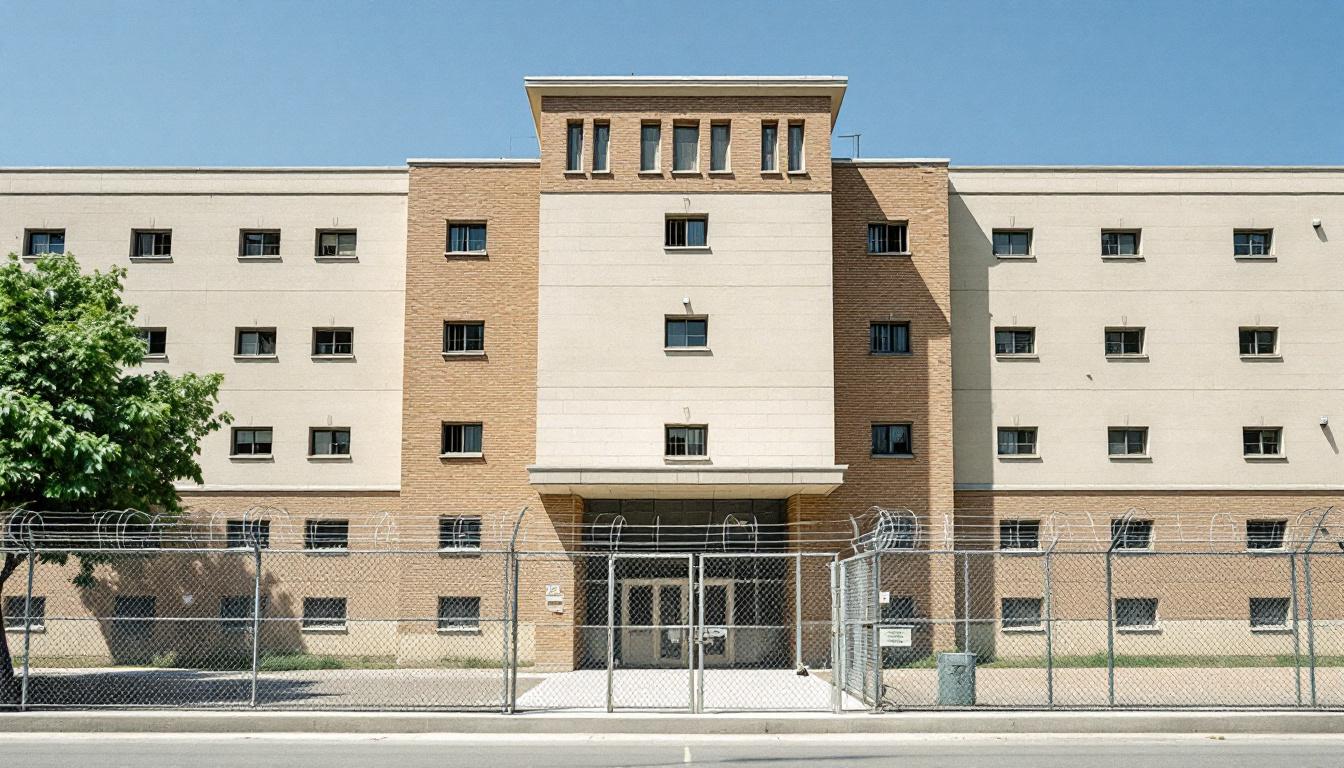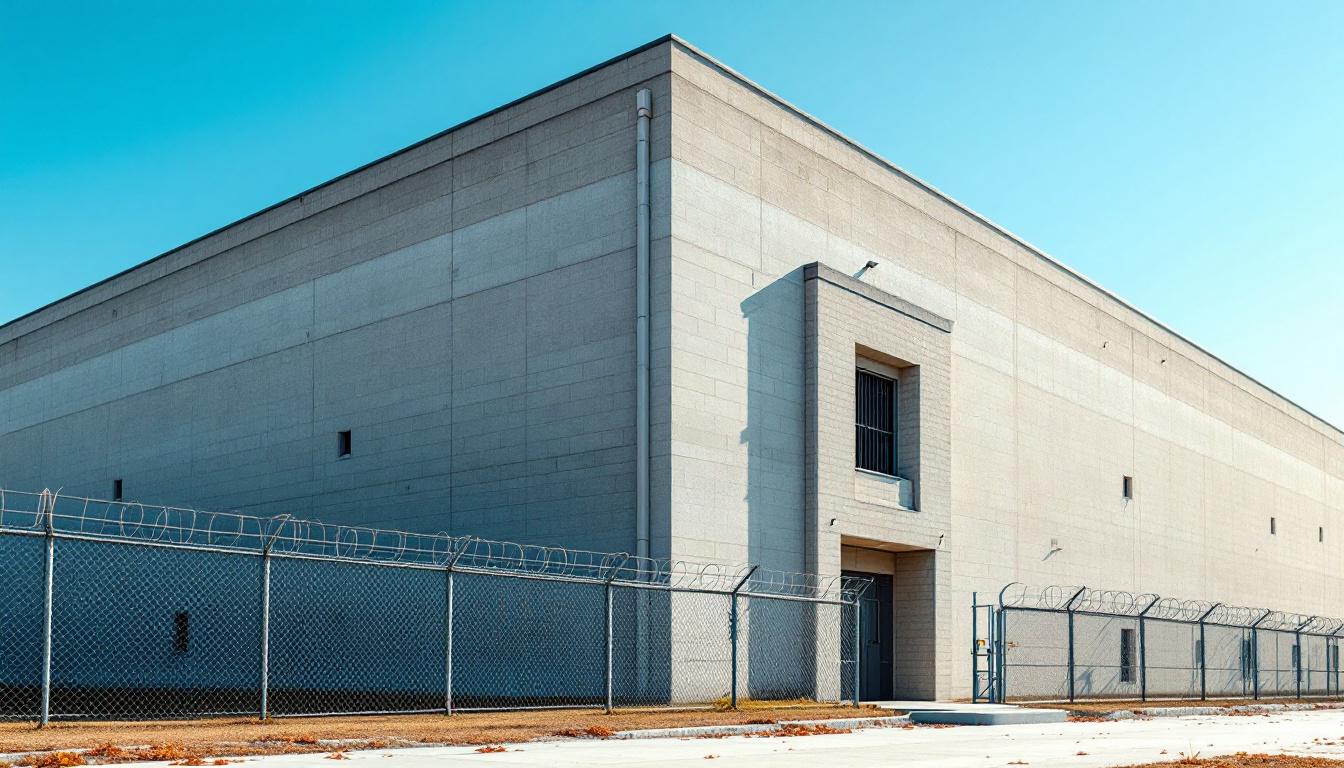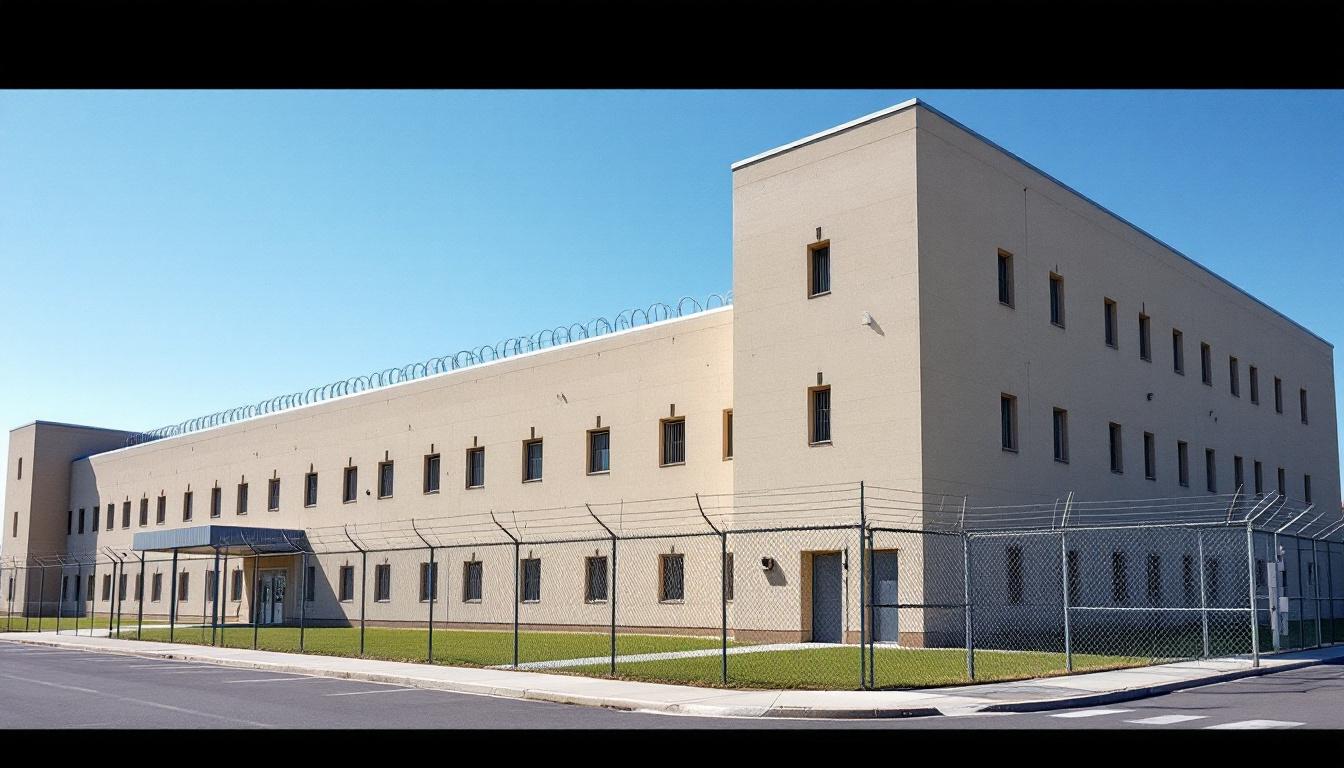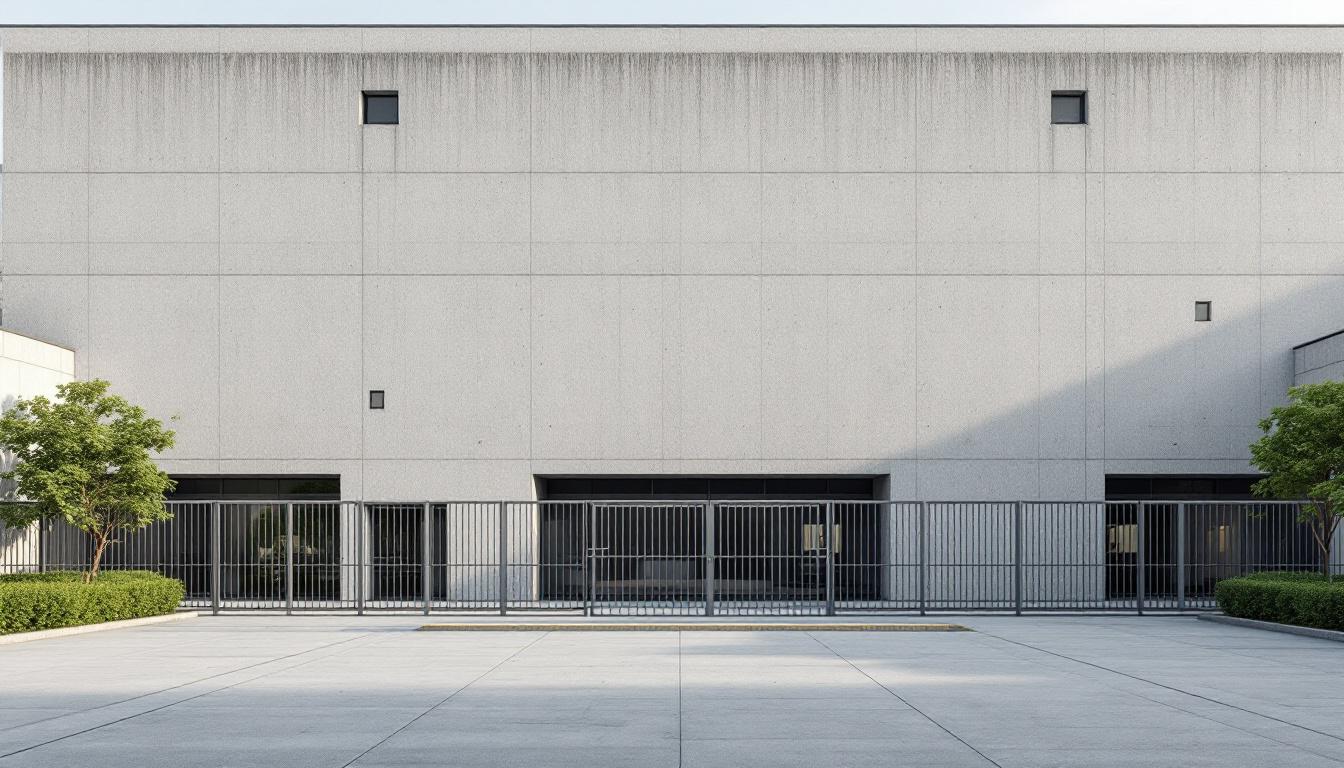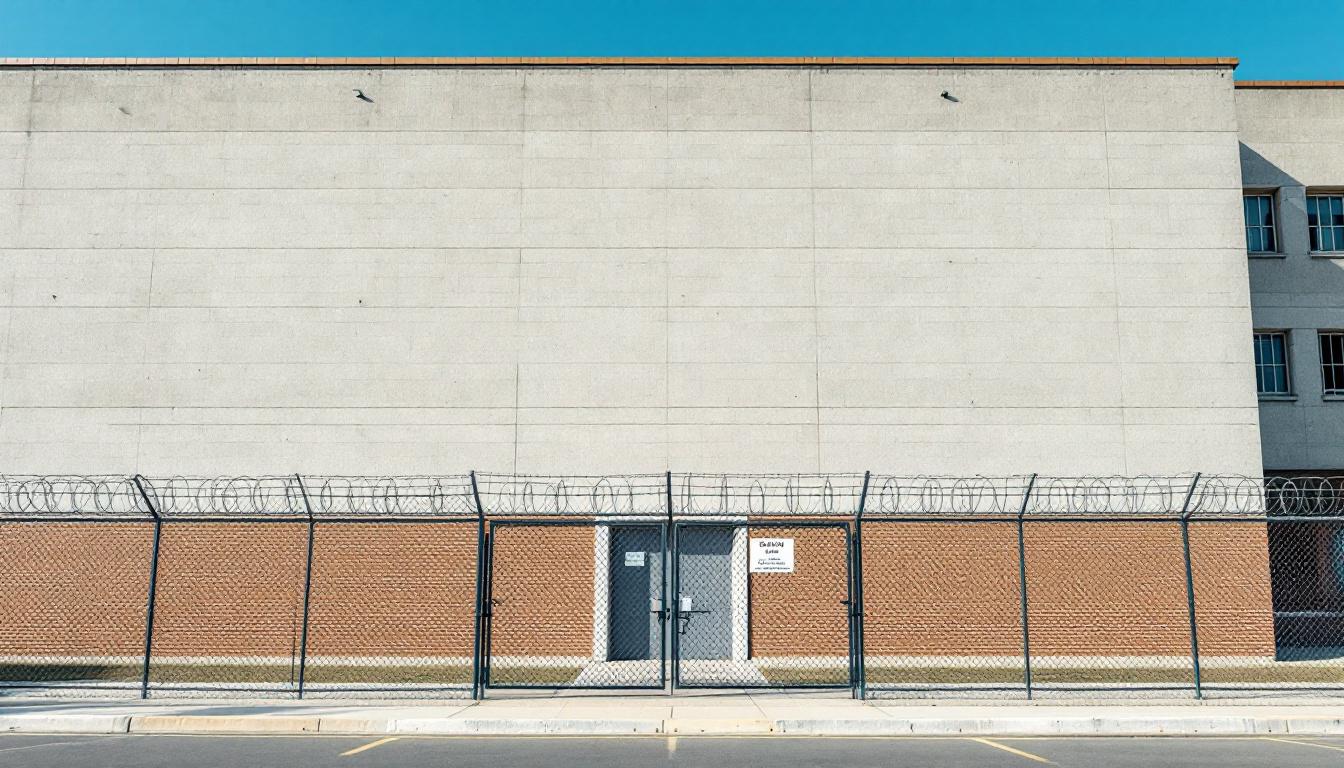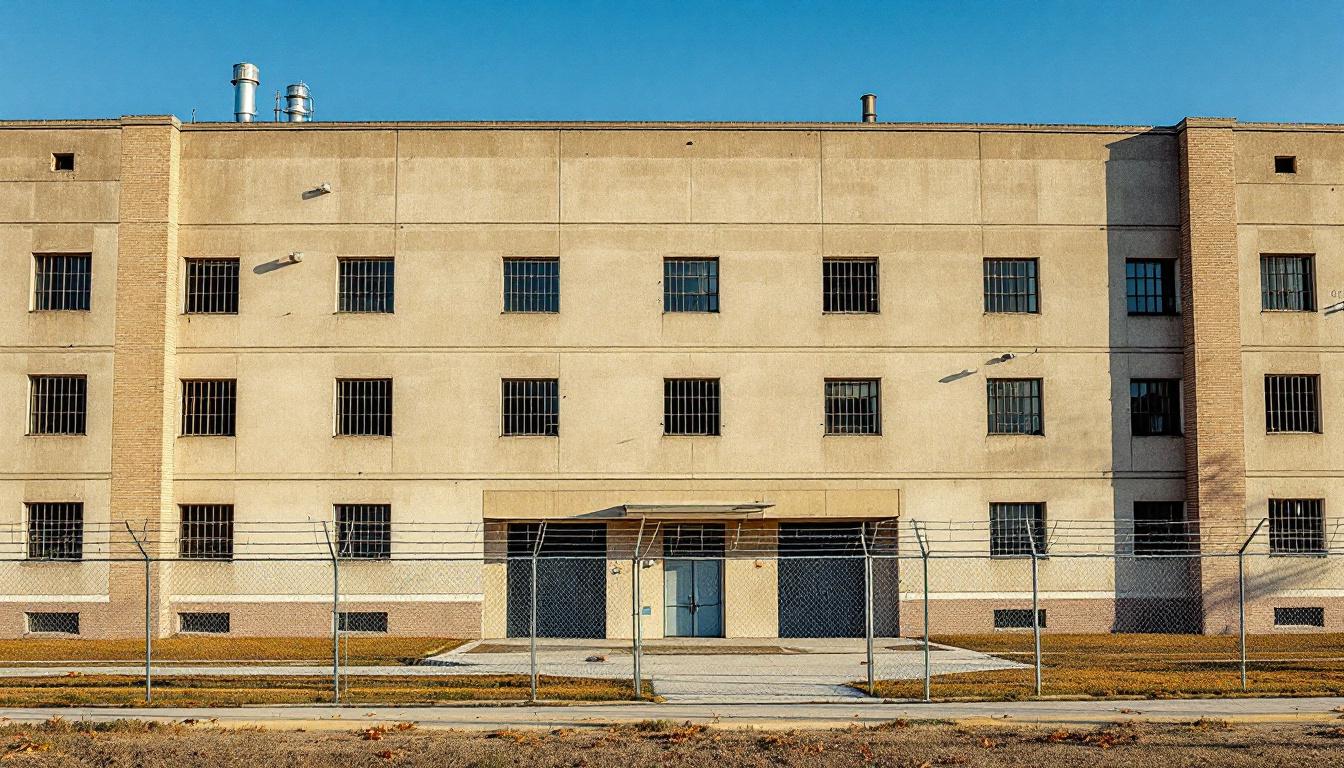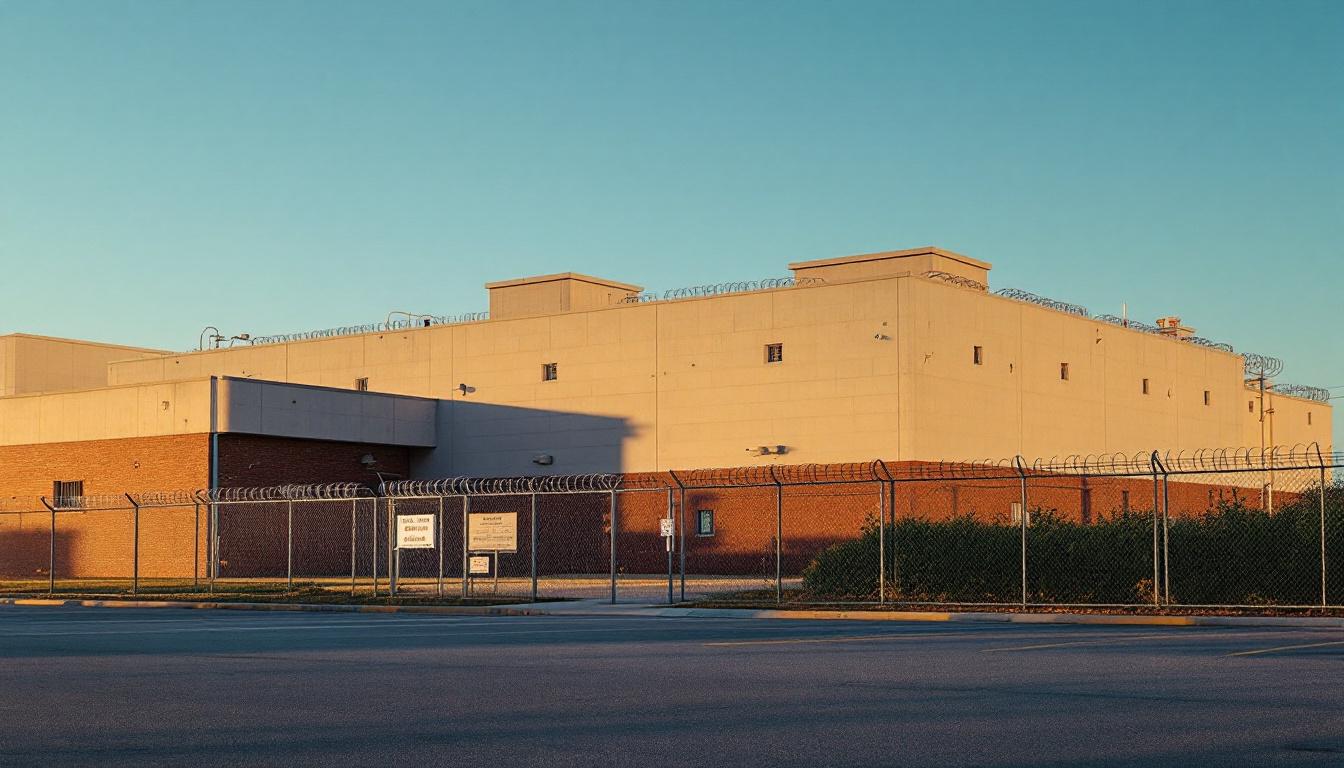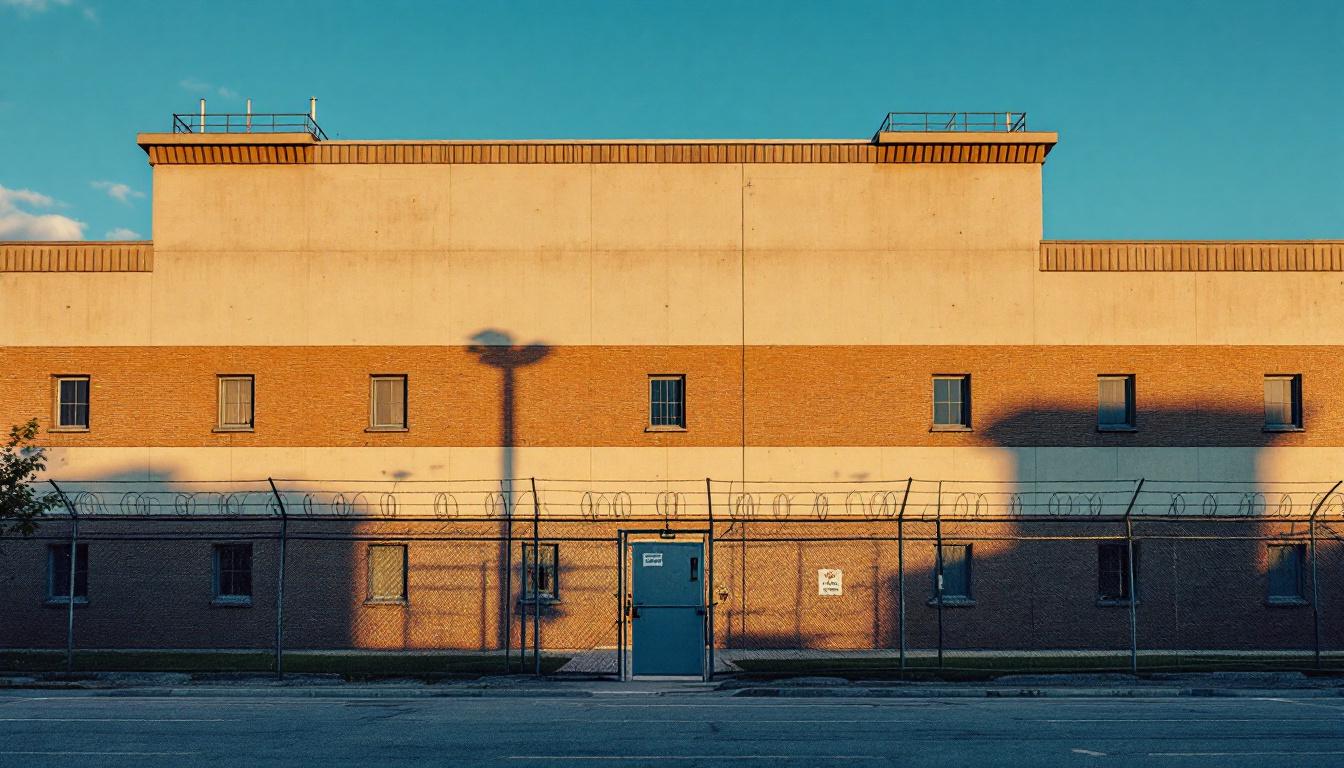
Quick Navigation
How to contact an inmate at Cotton Correctional Facility
This comprehensive guide will walk you through how to connect with an inmate at Cotton Correctional Facility. Follow the steps below to find an inmate and send letters and photos:
- Search for the inmate using our search tool below
- Create your account or log in to Penmate
- Write your message (up to 6,000 characters)
- Send instantly - inmates receive printed copies daily
Find an Inmate
Search for an inmate to start communicating today
Tip: You can search by first name, last name, or inmate ID number
To contact a person at Cotton Correctional Facility start by searching for the person on the official facility website. Perform a search by following these steps:
- Step 1: Enter their first name and last name into the search form and click "Search"
- Step 2: Locate their inmate record
- Step 3: Write down their Inmate ID and any housing information provided
Important! Be sure to enter the person's full name. Nicknames should not be used.
How to Send Messages to Inmates

You can use your phone or computer to send emails, letters, and photos to an inmate. Messages are sent electronically to inmate tablets or kiosks at the facility. If you would like to send a message, start by searching for an inmate at Cotton Correctional Facility.
Sending Photos and Postcards

A great way to send love and support to a loved one at Cotton Correctional Facility is to send photos and postcards. It only takes a few minutes to send photos from your phone and it makes a huge difference. You can also mail postcards with words of support and inspiration, or design your own postcard for special moments like birthdays and holidays.
Important! Be sure not to send any explicit photos or they may not be approved by the facility. You can also use a photo printing app like Penmate to make sure your photos are printed at the correct size (4x6 or 3x5) and are mailed according to the rules and regulations of Cotton Correctional Facility.
Frequently asked questions about Cotton Correctional Facility
-
How long does it take to deliver a message?
If you're sending an email message your letter is usually delivered within 24-48 hours. For messages sent via mail you should expect delivery within 3-7 days. All messages will need be approved by Cotton Correctional Facility.
-
How much does it cost to send a message to Cotton Correctional Facility?
You can send a message free using your phone or mail a message via USPS for the price of a $0.60 stamp and envelope. You can also purchase credits or e-stamps from services starting at $1.99.
-
What services can I use to contact an inmate at Cotton Correctional Facility?
Penmate
You can use Penmate to send letters and photos to an inmate from your phone. It's an easy way to stay in touch during your loved one's incarceration. Use the inmate locator to find an inmate's location and contact information, then you can send messages within a few minutes.
Securus messaging
Securus may be another option for communicating with an inmate at Cotton Correctional Facility. You can create a friends and family account and purchase credits to send messages. All messages will be reviewed and must be approved by the facility.
JPay
Some county jails and state prisons may support sending messages with JPay. You must register an account with the system, find your loved one, and purchase stamps to send messages. For some locations you can also attach photos.
Smart Jail Mail
You may also check if Smart Jail Mail is available at Cotton Correctional Facility. Smart Jail Mail is operated by Smart Communications and has contracted with some state and county jails. After purchasing credits, your messages and photos are sent to the facility, printed out, and then handed out to your loved one.
-
What is the mailing address of Cotton Correctional Facility?
Mailing address:
Cotton Correctional Facility
3500 N Elm Ave
Jackson, MI 49201
Phone: (517) 780-5000Business hours:
- Monday: Closed
- Tuesday: 9:00 AM – 5:00 PM
- Wednesday: 9:00 AM – 5:00 PM
- Thursday: 9:00 AM – 5:00 PM
- Friday: Closed
- Saturday: Closed
- Sunday: Closed
-
What are the visiting hours at Cotton Correctional Facility?
Visiting hours at Cotton Correctional Facility vary by housing unit and security level. Generally, visits are scheduled on weekends and holidays, with some facilities offering weekday visits. Contact the facility directly at (517) 780-5000 or check their website for the current visiting schedule. Visits typically last 30-60 minutes and must be scheduled in advance.
-
What items are prohibited when sending mail to Cotton Correctional Facility?
Prohibited items typically include: cash, personal checks, stamps, stickers, glitter, glue, tape, staples, paperclips, polaroid photos, musical or blank greeting cards, hardcover books, magazines with staples, and any items containing metal or electronics. Only send letters on plain white paper with blue or black ink. Photos must be printed on regular photo paper (no Polaroids). Always check with Cotton Correctional Facility for their specific mail policies.
-
How do I send money to an inmate at Cotton Correctional Facility?
You can send money to an inmate at Cotton Correctional Facility through several methods: 1) Online using JPay, Access Corrections, or the facility's approved vendor, 2) Money orders mailed directly to the facility with the inmate's name and ID number, 3) Kiosks located in the facility lobby, or 4) Over the phone using a credit or debit card. Fees vary by method, typically ranging from $2.95 to $11.95 per transaction.
-
Can I schedule a video visit with an inmate at Cotton Correctional Facility?
Many facilities now offer video visitation as an alternative to in-person visits. At Cotton Correctional Facility, video visits may be available through services like Penmate, Securus Video Connect, GTL, or ICSolutions. Video visits typically cost $10-20 for 20-30 minutes and must be scheduled in advance. You'll need a computer or smartphone with a camera and reliable internet connection. Contact the facility for their specific video visitation policies and approved vendors.
-
What identification do I need to visit an inmate at Cotton Correctional Facility?
All visitors must present valid government-issued photo identification such as a driver's license, state ID, passport, or military ID. Minors must be accompanied by a parent or legal guardian who can provide the minor's birth certificate. Some facilities require visitors to be on the inmate's approved visitation list, which may require a background check. Contact Cotton Correctional Facility for specific ID requirements and visitor approval procedures.
-
How can I find out an inmate's release date?
To find an inmate's release date at Cotton Correctional Facility, you can: 1) Use the online inmate search tool if available, 2) Call the facility's records department, 3) Contact the inmate's case manager or counselor, or 4) Have the inmate provide this information during a call or visit. For privacy reasons, some facilities only release this information to immediate family members.
Facility Overview
Contact Information
Cotton Correctional Facility3500 N Elm Ave
Jackson, MI 49201
Phone: (517) 780-5000
Official Website
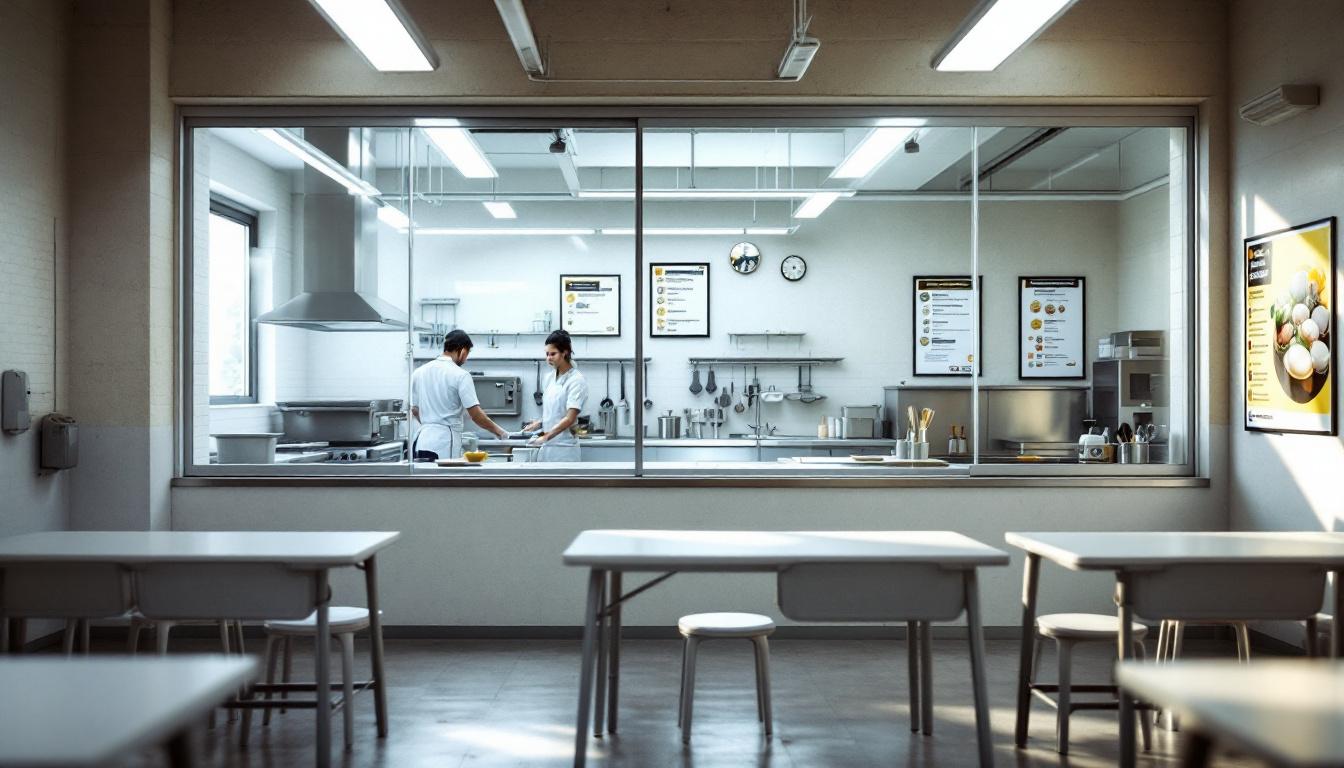
About Cotton Correctional Facility
Serving as a vital component of Michigan's correctional infrastructure, the facility's primary mission centers on providing secure housing and structured programming for individuals within the state's custody. Located in Jackson, Michigan, G. Robert Cotton Corr. Facility, MMI operates within a region that has long been integral to the state's correctional system, contributing to public safety while working toward positive outcomes for those incarcerated.
The MI correctional facility typically emphasizes evidence-based approaches to address the diverse needs of its population. Programming efforts may include educational opportunities, vocational training, and substance abuse treatment services designed to support reentry preparation. Mental health services and medical care generally form essential components of daily operations, while security protocols maintain the structured environment necessary for both staff and resident safety. Those incarcerated services often extend to library access, recreational activities, and visitation programs that help maintain family connections during the period of incarceration.
Within Jackson's broader correctional landscape, this facility generally operates as part of Michigan's comprehensive approach to corrections and rehabilitation. The structured daily routines typically include work assignments, educational programming, and therapeutic interventions that may support skill development and personal growth. Administrative staff generally coordinate with various state agencies and community organizations to facilitate reentry planning, though specific partnerships may vary over time based on available resources and evolving correctional practices throughout the midwest region.
Programs & Services
Opportunities for personal transformation and skill development form the foundation of life at G. Robert Cotton Correctional Facility. Those incarcerated here can access a structured environment that emphasizes building practical abilities and preparing for successful community reintegration. The facility typically maintains a focus on security and safety while creating pathways for meaningful growth.
Educational and vocational offerings may furnish those incarcerated with essential skills for future employment. The facility often includes vocational education programs that cover various trade skills and technical training. Furthermore, culinary arts training provides hands-on experience in food preparation and kitchen management. These educational opportunities typically emphasize both academic learning and practical application in a controlled setting.
Support services often include comprehensive reentry preparation and life skills development. The prisoner reentry initiative may furnish guidance on community transition planning and resource connections. Furthermore, decision-making skills training typically helps participants develop better judgment and problem-solving abilities. Commercial driving (CDL) preparation and grounds maintenance programs often provide additional vocational pathways. These support offerings typically operate within the facility's structured environment to ensure safety while promoting personal development.
Daily Life & Visitation
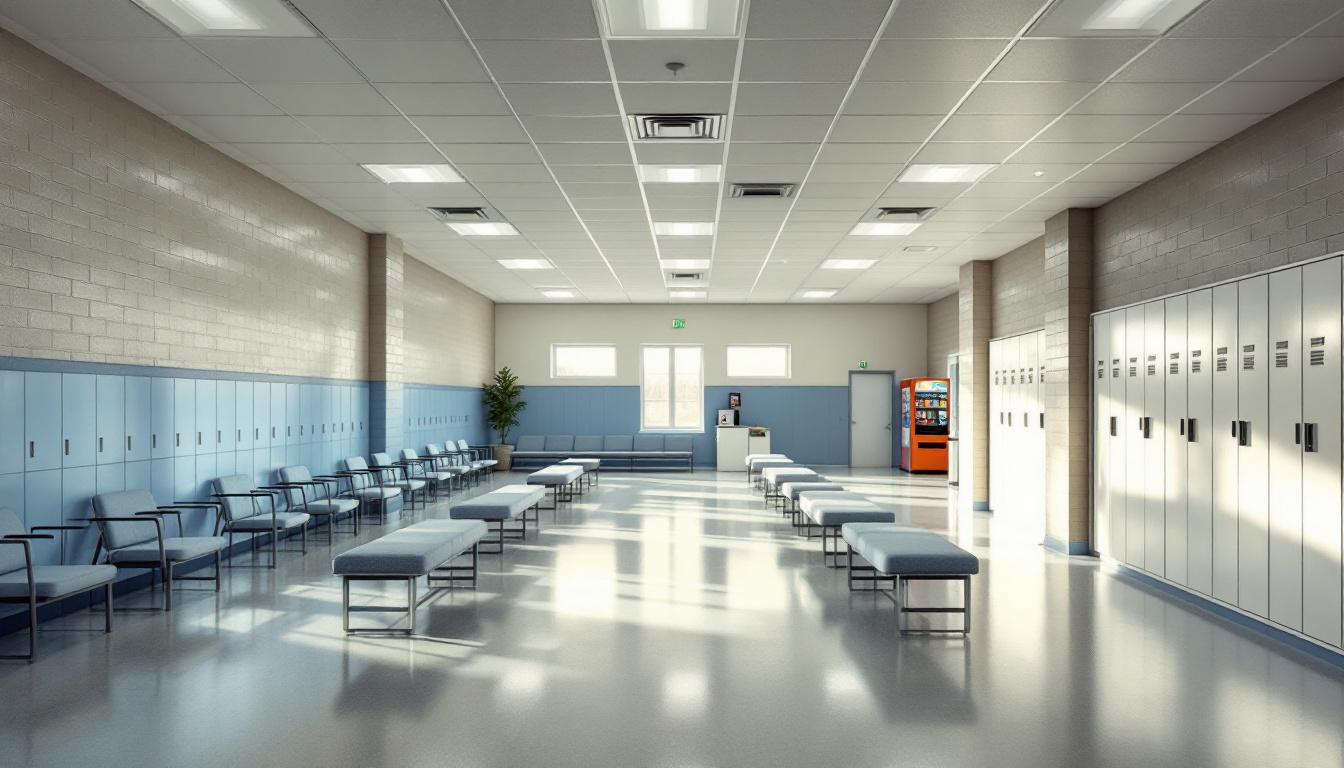
Building meaningful connections remains central to the experience of those incarcerated at G. Robert Cotton Correctional Facility. At present, residents actively participate in structured daily routines that begin with early morning counts and meal service. The facility typically operates on a schedule that includes work assignments, educational programming, and recreational periods throughout the day. Those incarcerated generally move between housing units, work areas, and common spaces under supervision, with activities designed to furnish both structure and opportunities for personal development.
Furthermore, living accommodations typically consist of shared cells or dormitory-style housing units where residents may develop supportive relationships with their peers. Meals are generally served in communal dining areas at designated times, providing regular opportunities for social interaction and community building. Although movement is regulated, those incarcerated often have access to common areas during specified periods where they can engage in conversations, watch television, or participate in group activities that help maintain social connections.
The facility usually offers various recreational opportunities that may include outdoor exercise yards, gymnasium access, and organized sports activities. Visitation policies typically allow family members and approved visitors to maintain contact through scheduled visits, while communication options often include telephone access and correspondence. Work assignments within the facility may furnish residents with job skills and daily purpose, ranging from kitchen duties to maintenance tasks. Educational and vocational programming generally provides additional structure to daily life, helping those incarcerated prepare for eventual reintegration while maintaining connections to their support systems outside the facility walls.
Ready to Connect?
Start communicating with your loved one today
Search for an Inmate
